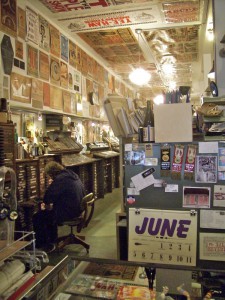Today’s date is made up entirely of prime numbers: 7, 5, and 2011. I’m sure you already noticed that, because you’re already aware that 2011 is a prime number, and so you’re watching for the fifty-two dates this year made up entirely of prime numbers. Which means that you have also noticed that there are three prime number Sundays this month, which is the greatest number of prime number Sundays you can have in any month.
However, you may not have thought about the fact that Saturday’s date is made up of consecutive odd numbers (if, that is, you define the number of the present year to be 11, as it is often written, rather than 2011). Ron Gordon of Redwood City has thought about it, and has received national press in his efforts to promote what he calls Odd Day. I’d have to say that a more precise name would be Consecutive Odds Days, but I recognize that “Odd Day” is a catchier name.
Using Gordon’s definition, there are six Odd Days per century. For purists who believe that a number is a number, dammit, and you can’t just arbitrarily chop off the digits to the left of the tens place, there were only six true Odd Days ever using our present system of numbering years, and those happened even before our present system was in place. While this notion might disturb you, it is probably more satisfying to the pure mathematician, for the pure mathematician prefers things that don’t actually exist.


